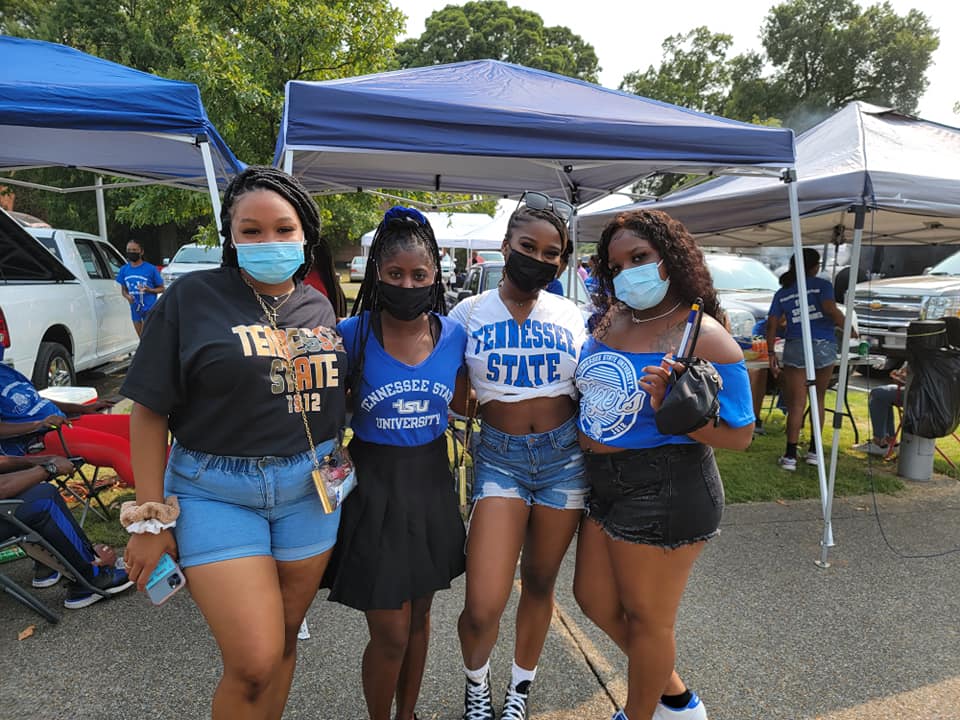Fred Parson gives a speech — maybe more of an order — to family and colleagues every year as he prepares to celebrate the Southern Heritage Classic weekend.
“I tell anybody in my family, ‘Do not get married on this weekend,’” Parson said. “Check the calendar before you schedule your wedding on the Southern Heritage Classic. It’s not a good weekend to do anything else … because I’m not going to be there.”
This weekend will be a bittersweet one for Parson. He’s a 1999 graduate of Tennessee State University (TSU), an alumnus of the school’s famous marching band, the Aristocrat of Bands, and he’s been to every Classic except for one. This weekend, Parson will likely experience the magic of the Classic for the very last time.
The Southern Heritage Classic is the annual football matchup between TSU and Jackson State University (JSU), both historically Black colleges and universities (HBCUs). Since 1990, fans have met in Memphis to witness the matchup between the two teams, and to participate in a weekend full of events that are a touchstone of Black culture.
JSU announced in February it would no longer participate in the Classic, terminating their contract agreement early due to scheduling conflicts. As alumni and fans prepare to say farewell to the Classic, they begin to reflect on the many elements that contribute to the event’s iconic nature.
For Shun Hill, a 2003 TSU graduate and Aristocrat of Bands alum, “there’s nothing like the feeling of being part of the halftime show.”
“Marching into the stadium … there’s nothing like the crowd’s reaction to a great show,” Hill said. “It’s actually sad that it’s the last one. I don’t know how many I’ve been to, it’s been at least 15 or so. It’s been a part of my life since high school. It’s going to be hard to let it go. It’s going to be very hard.”
Hill talked about several enjoyable aspects of the game such as the familial aspect of tailgating, to the trash talking prior to the game. She said that alumni have discussed the future of potential matchups for the next game, but she believes nothing compares to the rivalry between the two schools.
“I don’t know what HBCU football will occur after this, but I can’t see it nearly having the crowd support or even community support that Jackson and TSU have because of the communities that exist here within Memphis,” Hill said.
The tight-knit community aspect is one that many experience first-hand as HBCU alums, but Parson explains that it also impacts those outside of the HBCU community, and even those outside of Memphis.
“Most of the time these kids [in DeSoto County] don’t know much about Memphis,” he said. “They didn’t grow up in Memphis. All they hear about is the bad stuff and what you see on the news. But when you go to the Classic, and when you go to the tailgate, you see thousands on top of thousands, on top of thousands … probably between the game and the tailgate, you’ll see 100,000 people out there. And everybody is just love.
“It’s about Black culture. It’s about two universities. They’re just out there having good, genuine fun for a weekend.”
